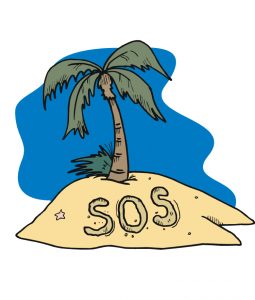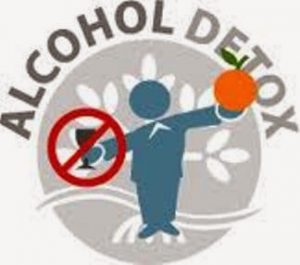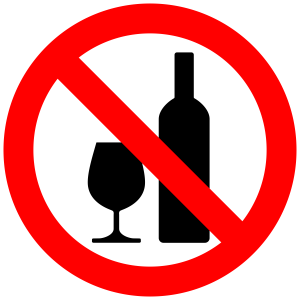I Am An Alcoholic — Now What? — Talk Sober at YouTube.com
Disclaimer: Marcus is NOT a doctor or a trained addiction counselor. The information in these videos is provided as a resource only, and is not to be used or relied on for any diagnostic or treatment purposes. Nor is it to be used as a substitute when professional diagnosis and treatment is needed. Please seek professional help when needed. Alcoholism is serious… DON’T mess around! Visit www.TalkSober.com/help or get professional help.
There I was, stricken with anxiety so bad I could barely walk. The hangover from the night before masked by more alcohol put into my body just a few minutes ago. It was about 9 am, time for me and my wife to go to couples counseling.
Today was the day I’d mustered up enough courage to say, yes, I’m Marcus Campbell and I’m an alcoholic, and I need help.
I thought that therapy was going to solve everything, and all that I needed would be at my disposal. So I walked into my therapist’s office, my wife supporting me, and said that I needed help.
 The therapist stopped everything she was doing and focused on the problem at hand. She looked up places to go and things to do. My wife called my mother-in-law to come take care of the kids while we got sorted out.
The therapist stopped everything she was doing and focused on the problem at hand. She looked up places to go and things to do. My wife called my mother-in-law to come take care of the kids while we got sorted out.
Everything seemed settled, and we went home. But there was no call from rehab. We tried to reach the therapist and nothing happened. There I was, finally having mustered up enough courage to go get help, and no one was there to help me.
I didn’t get help until almost a year later.
As I found out trying many different avenues, it was actually quite difficult to get help. It’s probably even more difficult if you don’t have a health plan or insurance. I don’t want you to take the road I took. So, we’re going to talk about how to get you the help you need.

Get a Good Detox Plan
Detoxing from any drug can be dangerous, but alcohol detox can be fatal. Go to a hospital, rehab, or get some kind of assisted detox—just make sure you get help. You can check out www.talksober.com/plan for some plans on what to do when you detox, what to watch for, and some tips on detoxing that I went through that will help you out.
Set Up a Rehab and Restore Plan
Setting up a good plan reduces the risk of relapse and helps you on the road to recovery for the long haul. That could be an in-patient program, a full residential rehab for 30 days or even 90 days, an outpatient program, or going it alone. You can check out some rehab and store plans at www.talksober.com/rehab.
Don’t Drink No Matter What
No matter what happens in your life, no matter how bad things get, just remember, you’re going to get a lot worse if you keep drinking. Drinking is a temporary solution to a long-term problem, and it’s not going to last very long. It might make you feel better now, but remember the times that you felt like crap, when you had racing thoughts, and everything was out of control. Remember where you came from, because your brain is going to try and trick you, and make you think that everything is okay and you don’t need help. Make the “ass fall off pact”, which means you’re going to agree not to drink, even if your ass falls off today.
Get a Good Short-Term Plan
Get a plan in place for each phase of your sobriety. They’ll remind you that for those days you’re going to feel a certain way, and that’s normal. That way, you won’t think you’re going crazy, and that you need to go back and drink. The first 7 days are crucial—if you’re not careful with your detox, you could die. Once you get past the first 10 days, your brain starts to recover, and you start to feel a bit better. After the first 14 days, you’ll start to feel pretty good. The first 30 days, 60 days, and 90 days are what some call the “honeymoon period,” because you feel much better.
Go to www.talksober.com/plan and check out these plans:
First 7 Days: Detox and Getting Back to Normal
First 14 Days: Learning New Sober Ways of Living
First 30 Days: Creating New Habits, Brain Starts to Recover
First 90 Days: Relapse Prevention and Long-Term Sobriety Plans

Find Long-Term Structure and Support
Make a long-term plan with some structure and support so that you’re aware of what’s going on. Within the first year or two, avoid making any major life changes unless you have to. Remember to be gentle on yourself and give yourself enough time to heal. Allow yourself a lot of forgiveness, and work through this problem with someone who’s been there and someone who knows what to do. You are not alone in this anymore.
Find a Support Group
Find friends or a local group with the common goal of staying sober. This might be through a recovery program, religious space meetings, just people talking, therapy, etc. Whatever it is, make sure your family and friends know that you’re not drinking anymore and you want them to support you. Explain your predicament. It doesn’t mean you’re weak if you don’t want to drink—it just means you don’t want to drink. If people have a problem with that, don’t let that stop you from your recovery. This is about you, and your life, and you feeling better. Learn more about support options at www.talksober.com/support.
Get A Good Relapse Prevention Plan
Ask yourself, what would you do if you get in a jam? If you can’t stand it and want to go drink? What will you do if those urges and cravings come back, or the things in life don’t go as planned? You have to have a good prevention plan. For more details and tools, go to www.talksober.com/plan.
 Congratulations on taking that first step. You’ve said, I understand that I have a problem, and I need help. At the end of the day, this isn’t about what other people think, say, or feel. This is about you.
Congratulations on taking that first step. You’ve said, I understand that I have a problem, and I need help. At the end of the day, this isn’t about what other people think, say, or feel. This is about you.
Remember, knowledge gives you options, but what you do keeps you sober.
For more information, visit TalkSober.com
